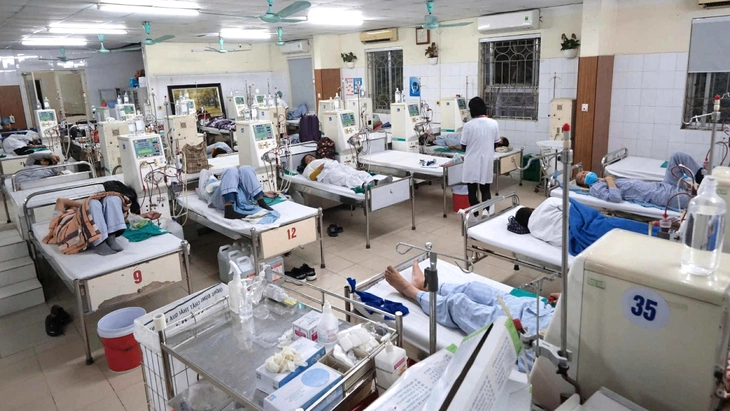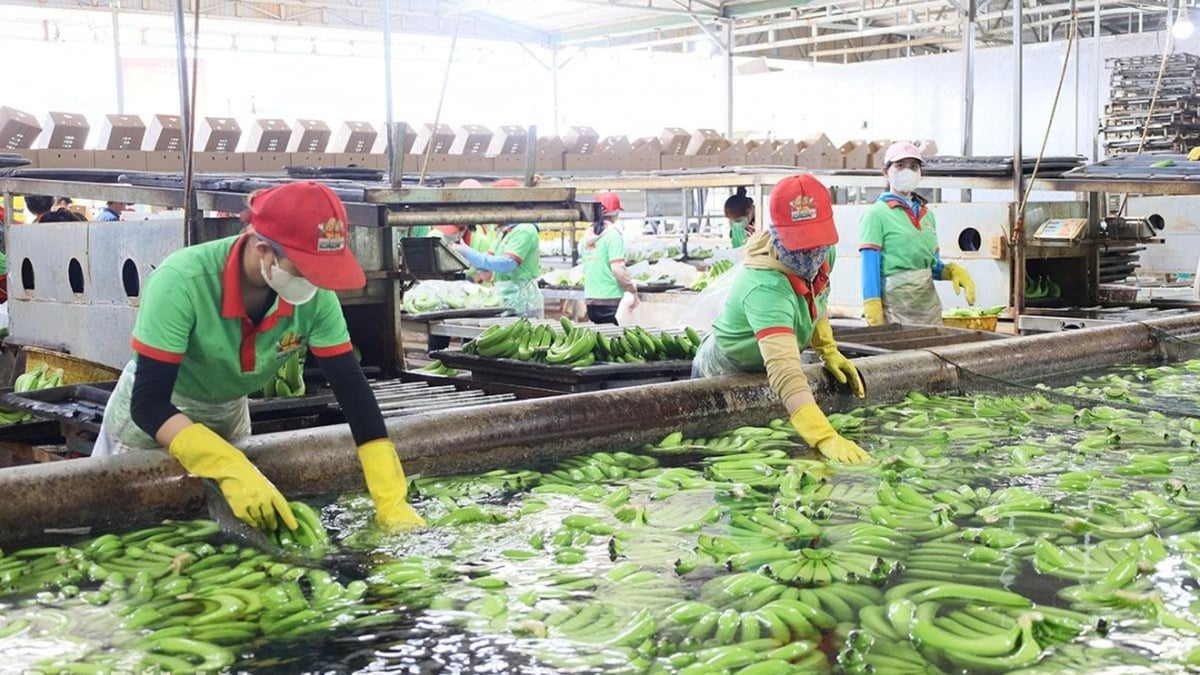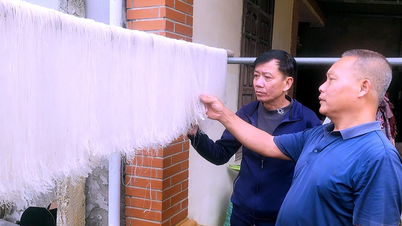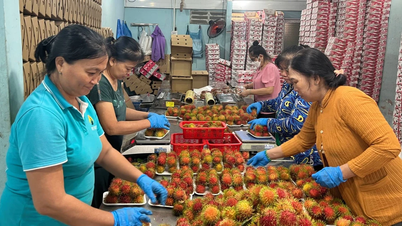
Chronic kidney failure patients being treated at Bach Mai Hospital - Photo: NAM TRAN
There are young people who should be studying hard at university or eagerly pursuing their dreams and ambitions. But three times a week, they become "regulars" at the hospital, fighting end-stage kidney failure, their lives tied to IVs, needles and machines.
Why is the number of young people with kidney failure increasing?
Kidney failure in your twenties
Recently, the story of a 29-year-old young actress suffering from end-stage renal failure has made many people feel sorry.
Also suffering from kidney failure at a very young age, being a second-year student at a university in Hanoi , H. (22 years old) never thought that besides the university lecture hall, the hospital's dialysis department would become his second familiar address.
H. shared that two years ago she suddenly felt tired, had pale skin, and lost weight, so she went to the hospital for a check-up. Before that, she was completely healthy and had never had a health check-up. At Hanoi Medical University Hospital, the doctor determined that she had chronic kidney failure due to glomerulonephritis. Following monitoring, the kidney failure progressed rapidly, and she had to be hospitalized for inpatient treatment.
After performing paraclinical tests, H. was diagnosed with focal-localized glomerulosclerosis, a type of glomerular injury with a poor prognosis, easily causing loss of kidney function, requiring her to undergo periodic dialysis or a kidney transplant.
"Since then, in addition to class time, I have to go to the hospital three times a week for regular dialysis. All my future plans have had to change," H. said sadly.
The Kidney, Urology and Dialysis Center of Bach Mai Hospital receives 30-40 new patients every day, including an increasing number of people under 30 years old with kidney failure. Some people do not even know they have the disease until they are hospitalized for emergency care.
Mr. TVM (30 years old, Bac Giang ) is a typical example. Five years ago, while at work, Mr. M. suddenly felt stomachache and nausea. At the district hospital, he was diagnosed with end-stage renal failure, although he had been completely healthy before.
Since then, his life has been tied to the hospital, with three dialysis sessions a week. "I want to go to work but my health does not allow it, even normal activities are difficult," Mr. M. shared.
In many nephrology and urology departments in hospitals, the number of cases of chronic kidney failure in young people tends to increase. There are even patients as young as 15-16 years old who have been diagnosed with end-stage chronic kidney disease.
Lifestyle puts pressure on kidney function
Doctor Nghiem Trung Dung - Director of the Center for Kidney, Urology and Dialysis at Bach Mai Hospital - said that recently, cases of chronic kidney failure have tended to be younger.
Young people with kidney failure are related to many problems, in which in addition to the cause of glomerulonephritis, irregular eating and living habits are also risk factors that promote early metabolic diseases, causing many diseases including chronic kidney disease.
"Young people today use too many drinks of unknown origin, eat a lot of convenient foods such as instant noodles with high salt content, plus irregular living habits, not in accordance with biological rhythms. Sleeping too late, being lazy to exercise leads to obesity. These are risk factors for many diseases, including kidney disease," said Dr. Dung.
Doctor Nguyen Van Tuyen, head of the Department of Nephrology and Urology at Duc Giang General Hospital (Hanoi), also stated that the number of young patients with kidney failure requiring special dialysis cycles has increased sharply in recent years.
Talking about the increasingly younger causes of kidney failure, Dr. Tuyen also said that in addition to traditional causes such as genetic diseases, infections, and diabetes, a sedentary and unscientific lifestyle has also become a typical risk factor of the 4.0 era.
"Urbanized lifestyle, high-energy diet, overuse of processed foods with many preservatives, alcohol abuse and sedentary lifestyle are factors that can increase the risk of kidney failure," Dr. Tuyen analyzed.
According to experts, many young people are subjective because they think they are healthy and do not go for health check-ups. This subjectivity leads to the inability to detect kidney failure early when it is only in the early stages, missing the golden opportunity to treat the disease.
Symptoms of chronic kidney failure are vague. Early signs may include fatigue, anemia, and foamy urine, which can be early warning signs of kidney failure.
However, young people are often confident about their health, so when they occasionally experience a transient headache or high blood pressure, they ignore it and do not go to the doctor. By the time the symptoms become severe, the disease is already in a late stage.
Chronic kidney disease cannot be completely cured.
Doctors say that unlike many other diseases, chronic kidney failure cannot be completely cured. When kidney function is lost below 10%, patients are forced to undergo dialysis or kidney transplant - expensive treatments that require long-term hospital stay and seriously affect the quality of life.
"If chronic kidney failure is detected early, consulting a doctor about diet, lifestyle and disease control will help slow down the progression and limit complications," Dr. Tuyen shared.
Everyone should have regular health check-ups to detect diseases early. If you get sick, follow the treatment to prolong the time of conservative treatment with low treatment costs, effectiveness, less follow-up time... improving the quality of life.
What to do to protect the kidneys?
To protect the kidneys, Dr. Dung recommends that everyone should follow a healthy lifestyle: drink enough water, do not eat salty foods, limit fast food, alcohol, and tobacco; exercise daily according to your physical condition; do not take medication on your own, especially painkillers and herbs of unknown origin.
In cases of chronic kidney failure, treatment should aim to slow disease progression, control complications such as high blood pressure, anemia, dyslipidemia, etc. to help patients maintain the best possible quality of life.
Dr. Tuyen emphasized that a salty diet is one of the risk factors affecting kidney health. "A salty diet increases the risk of chronic kidney disease because increased electrolytes cause the kidneys to increase excretion. In addition, eating salty foods increases blood pressure - this is a high risk factor for chronic kidney disease," Dr. Tuyen warned.
Source: https://tuoitre.vn/khi-nguoi-tre-song-mon-vi-suy-than-20250610232111515.htm
























![[Photo] Politburo works with Standing Committees of Lang Son and Bac Ninh Provincial Party Committees](https://vphoto.vietnam.vn/thumb/1200x675/vietnam/resource/IMAGE/2025/8/20/0666629afb39421d8e1bd8922a0537e6)
![[Photo] Prime Minister Pham Minh Chinh receives Australian Foreign Minister Penny Wong](https://vphoto.vietnam.vn/thumb/1200x675/vietnam/resource/IMAGE/2025/8/20/f5d413a946444bd2be288d6b700afc33)














































































Comment (0)